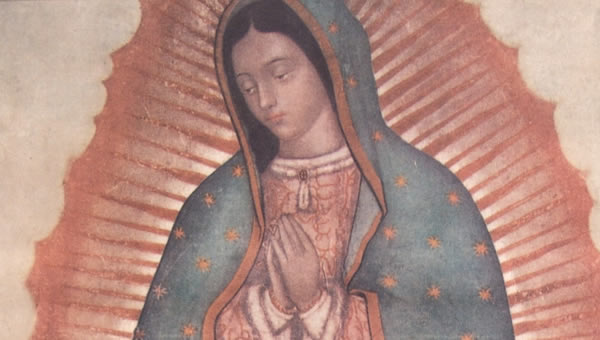In three to five years, we should have a new breviary in the USA.
Today our Bishops voted to go forward with the work of editing, amending, and in some cases re-translating the elements of the Liturgy of the Hours. This vote was a preliminary approval for the work to be done. Once a draft is complete--and no timelime was given for that--the bishops will again review, discuss, and debate before voting on whether to send it to Rome for approval. Then, once the bishops have approved and Rome has approved, there will be the process of getting it published.
So I think 3 to 5 years is pretty optimistic. The new missal took way longer than that.
Here are some details of today's debate priot to the vote.
Bishop Taylor argued for an amendment to expand the Office of Readings to include a two year cycle of scripture readings (such as Spanish breviaries already contain), and also a 2 year cycle of patristic readings. Archbishop Broglio also spoke in support of this, as did Cardinal DiNardo, who also mentioned that many of the current patristic readings were poorly translated and needed to be re-done. However, this amendment was voted down. Divine Worship Committee chairman Archbishop Aymond agreed that this should be done some day, but now was not the time. He argued that the priority now was to harmonize the current breviary with the Latin breviary, and that overhauling the Office of Readings would add years to the project.
Bishop Paprocki argued in favor of an amendment that would include more than just the (translated) Latin breviary hymns in the new breviary (i.e. a selection of the more modern hymns that we have now). Lots of discussion pro and con ensued. Cardinal O'Malley and Bishop Coyne argued for some kind of hymn supplement or appendix. Cardinal George argued forcefully against this. He said that tasking the Worship Committee a hymn supplement would put them in charge of determing which hymns were truly classic and which were mere period pieces. He said the current breviary is full of the latter, and that many of them, though perhaps meaningful in the seventies, were now "an embarassment". The Latin hymns, he argued, had stood the test of centuries, and are now in use in the British Isles and in India. There is still permission to substitute other hymns, so this option can be exercised by using hymnals, missals, and missalettes.
Another bishop, whose name I did not catch, added that with the current availability, and probably eventual takeover, of digital resources over printed, that it was not necessary to print common hymns in the breviary. The overriding principle was--just as with the missal-- to closely follow the Latin breviary, and when that principle was adhered to, the project could go forward with minimal loss of time.
The amendment to add extra hymns was voted down.
Cardinal Dolan then called for a vote on the whole project. It passed handily with 203 in favor, and 14 against.
Then something strange happened. Bishop Brom asked to be recognized. Apparently he had missed his chance to speak earlier either through his own confusion or Cardinal Dolan's overlooking him--it's not clear which. Cardinal Dolan let him speak. What followed was Bishop Brom's attempt to criticize not so much the proposed breviary project, but the new missal which was approved and has been in place for nearly a year. His way in to the discussion was to object to the new missal collects replacing the concluding prayers in the Office of Readings and Morning Prayer. He went on at length claiming that his priests and some of the laity did not like the new collects and prefaces, bringing up old objections about the style of grammar, length, etc., that had been hashed over years ago when the new missal was debated. He concluded by saying that before any discussion of a revised Liturgy of the Hours, the missal had to be re-visited since, he claimed, his own priests found it "more of a burden than a blessing."
[I couldn't believe my ears.]
Then Bishop Trautman made a complaint about the brevity of response time allowed during recent regional meetings about the breviary project, and for that reason lent his support to Bishop Brom's idea of putting a new breviary discussion on hold.
Bishop McDonnell (?) argued that going back to critique the new missal was counterproductive when so many were working hard to support it, to "communicate the awesome and transcendent nature of the liturgy".
Criticism would only encourage disunity, he said, and if priests would just review the collects and prefaces before mass, they would know how to read them with understanding.
Due to these after the fact objections, Cardinal Dolan allowed the vote to be repeated.
Thankfully, the plans for a revised breviary still passed, although this time the majority vote was only 189. Still the two thirds required, but obviously affected by the last minute attempt by some to stall it.
My own comments:
I'm basically happy with the outcome. Much as I'd like an expanded Office of Readings, what I want even more is to have the basic problems with out current breviary corrected
as soon as possible, and the work needed to expand the Office of Readings would eliminate any possibility of
soon. To recap, here is what the approved project will do:
-replace the current psalms with the
Revised Grail Psalter, which, trust me, is a huge improvement.
-replace the concluding prayers of the Office of Readings and Morning Prayer during the holy seasons with the opening collect prayers from the missal, and hopefully retranslate all the other hours' concluding prayers to be similarly faithful to the Latin edition, i.e. more beautiful in language and complete in theology.
-demote modern hymns from their place of prominence in the breviary, instead restoring to us a treasure that has been denied us for years: the lovely, poetic, and theologically superior Latin hymns in English translation.
-eliminate the psalm prayers. I know some will miss these. I believe that with a little instruction on interpreting the psalms, anyone can quickly learn to see the christological meanings in them on their own, and can then reflect in silence on what these meanings, rather than rely on the psalm prayers.
-re-translate the antiphons to better match the psalms.
-possibly restore the traditional Glory Be.
All in all, these are outcomes greatly to be wished for, don't you agree?










